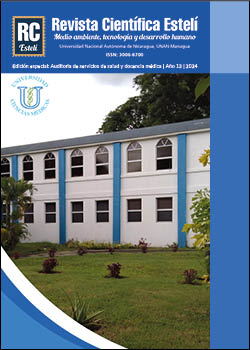Medical education in end-of-life care
DOI:
https://doi.org/10.5377/esteli.v13i1.17704Keywords:
Medical education, end-of-life care, review, competencies, pedagogical approachesAbstract
This article focuses on evidencing the importance of the educational component for end-of-life care in the academic training of undergraduate physicians, for which a search was conducted in different electronic portals. A total of 293 studies were identified, of which 18 were selected that addressed the subject from the point of view of medical education. The PRISMA method (Preferred Reporting Items for Systematic Reviews and Meta-Analyses) and the GRADE (Grading of Recommendations, Assessment, Development and Evaluation) system were used to present and evaluate the quality of the data. A positive trend was identified towards medical education in end-of-life care with different pedagogical approaches and programs that include clinical rotations and simulation, with evidence of effectiveness in the development of competencies; however, challenges were also identified, such as scarce time dedicated in the curriculum and insufficiencies regarding communication and empathy towards patients at this stage. Efforts to strengthen the promotion of empathy and effective physician communication are recommended.
Downloads
38
HTML (Español (España)) 9
Published
How to Cite
Issue
Section
License
Copyright (c) 2024 Revista Científica de la FAREM-Estelí

This work is licensed under a Creative Commons Attribution-NonCommercial-ShareAlike 4.0 International License.
© Revista Científica de FAREM-Estelí

